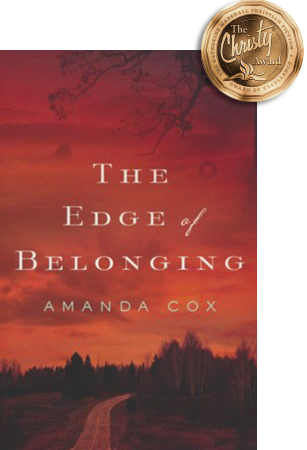As a literary agent, I send and receive a lot of emails. A lot. And that’s not even counting the emails offering my helpful diet tips and donut recipes. My emails aren’t always so practical, but it recently occurred to me that some weary or woeful writers might be helped by a peek at some of the wise and witty responses I’ve sent to clients and nonclients (because I’m just that kind of guy). Here are a few, cut-and-pasted from emails over the last few months, with no explanation and minimal redactions:
- The confusion likely arises from the shorthand use of “proposal.” As we use the term, “proposal” means a full proposal, as opposed to “query” and “query and sample chapters.” I prefer to look at full book proposals (which include hook, summary, author section, marketing/platform section, comparisons, etc.).
- Since publishers in general and Christian publishers in particular tend to be wary of signing a new (for them) author to a multibook contract, it’s often best to pitch a project as a book that could stand alone but “lends itself” to a series or “could lead to subsequent books in a series.”
- Since editors and agents will ask/search anyway, it’s best to include sales numbers of previous books (in parentheses after each title is mentioned) in the proposal. For example, a self-published book or series that has sold well can often move the needle in an agent’s or editor’s mind (mixed metaphors notwithstanding).
- The marketing section of your proposal doesn’t [do what a marketing section needs to do; it doesn’t] detail how you are currently reaching a lot of people in various and effective ways. It may be that a well-written revision of that section could make a difference. Use present tense (“her email newsletter reaches 1,200 subscribers”) rather than past (“she once appeared on Good Morning America”) or future (“she will launch a landing page for the book”).
- Generally, resubmitting to an editor/publisher is to be avoided. The assumption is that when they take the time to review a proposal/ms it’s the best it can be (before the editorial process, of course). Multiple submissions of updated material usually convey the wrong impression.
- If you could convert a great number more of your blog and social-media followers to email subscribers, it would make your proposal more attractive to publishers and, thus, to agents. If that seems helpful to you, feel free to be in touch as your platform expands.
- Different agents have different processes. In my case, when I see promise in a writer and project, I typically spend months working with him or her on a proposal to make it as sharp as possible—obviously, only if I’m very interested. The reasons for this are several: the back-and-forth reveals to me a lot about a writer and his/her processes and willingness to work, revise, refine, etc.; since I am an agent within Steve Laube’s agency, and the decision to take on a new client is both mine and his, I want to make sure when I recommend a new client that I do so with a sharp and shining proposal that will be sure to gain his approval; and by “front-loading” a good deal of the revising and refining work on a proposal, I avoid a painful situation in which I’ve taken on a new client only to discover that the writer isn’t willing or able to address some fatal flaw or difficulty in the project, making it necessary to reconsider representation. Of course, because this is my process, sometimes a writer will make great progress during our back-and-forth on a project that makes him or her irresistible to some other agent, and he/she signs with someone else. It happened just last month, but I consider that a win, because the writer did find representation, and can thereafter benefit from yet another pro’s perspective.
See how fun and exciting that was? I realize that these all lack context, but so do I much of the time. Still, one or two may give a sliver of helpful insight into an agent’s perspective. If not, at least I got a blog post out of it.



 Christy Awards 2021
Christy Awards 2021

I thank you for query you sent
it really has panache,
and I am not of the bent
to put it in the trash,
even though you truly shatter
most all submission rules;
for your genius these don’t matter,
they’re for blind following of fools.
You might increase your reading tribe
by a large amount.
Yes, you may just have to bribe,
and no, their cats don’t count.
I can place your ms, I know just where;
it will prop up my wobbly chair
This is helpful, Bob, thank you! I especially appreciate the clarification of “proposal” meaning a full proposal with sample chapters. It can be confusing when one editor says to send a “proposal” and another wants a “full proposal” and another wants a “full and a proposal.” I have started going with the strategy of either asking outright at the conference, looking at the website, or just sending more info in my proposal if it is not clarified. Your email makes me think that my plan wasn’t a terrible one, ha!
This post was very helpful.
Thank you for not caving to political pressure to use “their” instead of “his or her.” I am old enough to remember a time when “his” was inoffensive.
I appreciate you.
Thank you for you “wise” remarks. I missed the “witty ones.” They make a lasting impression on me.
Well, that was fun. In an odd sort of way. Kind of reminds me of editing, or writing, or living.
Thanks so much for the helpful tips, Bob.
Thank you! I’m going to hang on to this one and refer back as I move forward in my full proposal prep process!
Thanks, Bob,
You gave excellent insight and in a witty that leaves one with a strange smile. You helped a writer, but lost a client with zero remorse.
Instructive but also delightful!
Interesting and entertaining as always, Bob, and filled with concrete examples that help cement your points in my mind.
I’m always thinking quantitatively, and you made a couple of comments that relate to numbers. For newsletter subscribers, which are obviously gold because they care enough to sign up for more of what the author is offering, you mentioned 1200. What would you consider attractive subscriber numbers for traditionally published, indie published, and not-yet-published authors?
Also, what would you call “selling well” for a previously published book or series for a small-press author or indie author? Or if not “well,” then at least selling “well enough?”
Carol, we get asked these questions a lot. But there are just too many variables: Nonfiction v. Fiction, genre, and so much more. Nor are all individual numbers equal, let alone in the aggregate. So for one project a 1200-subscriber lost might be persuasive but for another very unpersuasive. I know I’m not being very helpful but “it depends” is an honest answer.
Awesome advice!